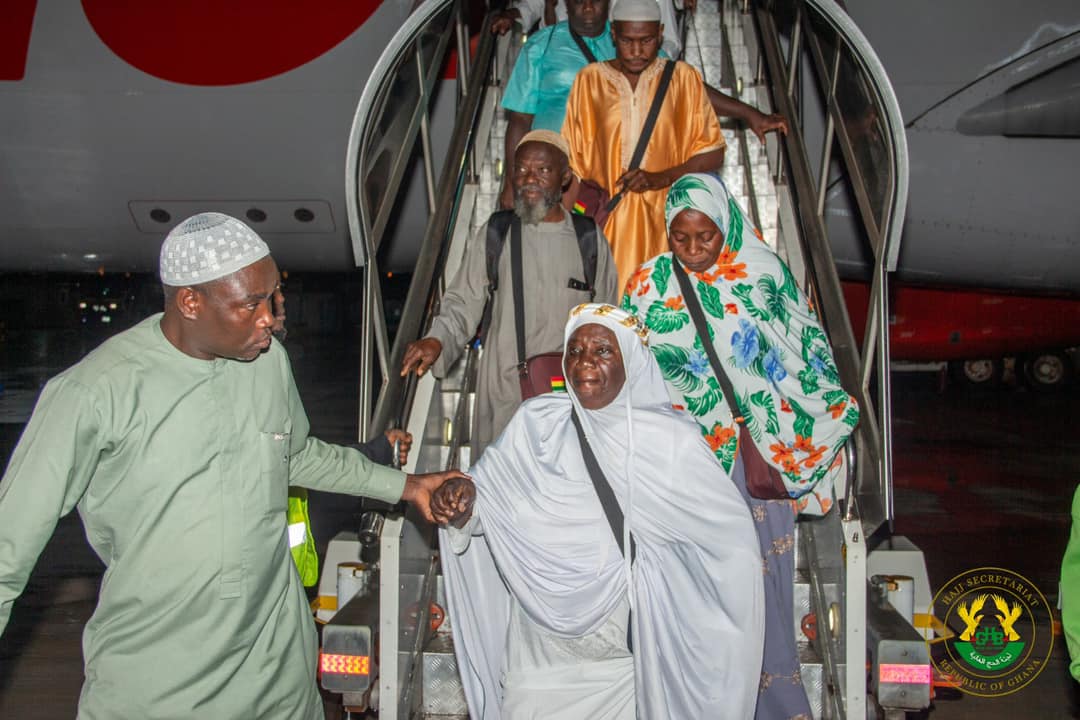The Paradox of Hajj Fare Complaints and the Enduring Debate Over Its Management in Ghana

The debate over Hajj operations in Ghana has taken centre stage once again following the significant reduction in fares by the new government.
In 2024, Ghanaian Muslims widely criticised the Hajj fare of GHC 75,000 ($6,250), calling on the government to intervene and make it more affordable.
In response, the new administration, through strategic negotiations with service providers in Saudi Arabia, successfully reduced the fare to GHC 62,000 ($4,130) in 2025.
However, instead of celebrating this achievement, a new wave of scepticism has emerged.
Some critics are demanding evidence of how the reduction was achieved, while others accuse the government of secretly subsidising Hajj using taxpayers’ money.
This contradiction raises important questions about the expectations and reasonability of Ghanaian Muslims when it comes to Hajj fare management.
The leader of the Hajj Task Force, Hon. Collins Dauda, has clearly stated that the reduction was achieved through prudent negotiations, not government subsidies.
Yet, some still refuse to accept this explanation.If the fare had remained at GHC 75,000, the government would have been criticised for being insensitive.
If the fare had increased to GHC 80,000 or GHC 90,000 due to inflation and economic factors, these same critics would have condemned the government for failing to act.
This paradoxical response suggests that, for some, the objective is not affordability but an opportunity to perpetually complain.
Beyond the issue of fare reduction, another long-standing debate has resurfaced: Should Ghanaian Muslims take full ownership of Hajj operations?
This discussion is not new. Since the era of President John Kufuor and his Vice President Alhaji Aliu Mahama, through the leadership of Professor John Evans Atta Mills, Vice President John Dramani Mahama, President Nana Akufo-Addo, and Vice President Dr. Mahamudu Bawumia, and now under President John Mahama and Vice President Prof. Naana Opoku-Agyemang, the issue of Hajj management has remained a topic of controversy.
During the 2024 election campaign, both the ruling New Patriotic Party (NPP) and the opposition National Democratic Congress (NDC) made Hajj affordability a campaign issue, with both parties acknowledging the need to lower costs.
However, until now, many believed that Hajj fares were untouchable and could not be reduced.
The new government’s decision to lower the fare proves otherwise, breaking the long-held myth that Hajj prices were beyond negotiation.
Despite this breakthrough, advocates of Muslim ownership have re-emerged, questioning the government’s role and management of the pilgrimage.
Proponents of Muslim ownership argue that:
1. Hajj will be more affordable—they claim that if Muslims manage Hajj themselves, they can further reduce costs.
2. Profits from Hajj can fund community development—They propose that financial surpluses from Hajj operations could be used to support economic, social, and religious initiatives within the Muslim community.
While affordability is a noble goal, the idea of using Hajj as a profit-making venture raises ethical concerns.
Hajj is a sacred obligation, not a business enterprise. Islam provides legitimate avenues for wealth generation and community development, such as zakat (obligatory charity), waqf (endowments), and voluntary sadaqah (charity).
Unfortunately, many Ghanaian Muslims neglect these options and instead see Hajj as an opportunity to generate revenue.
Profiting from Hajj risks exploiting pilgrims, many of whom save for years to fulfil this religious duty.
Furthermore, history has shown that some of those advocating for Muslim ownership have had the opportunity to manage Hajj in the past.
Records indicate that while some progress was made under their leadership, there were also cases of financial mismanagement and logistical failures, requiring government intervention to clean up the mess.
If Ghanaian Muslims are to manage Hajj operations effectively, the focus must be on ensuring affordability and transparency rather than treating it as a business venture.
Instead of engaging in endless criticism, Ghanaian Muslims should acknowledge and build upon the progress made.
The reduction in Hajj fares should be seen as an achievement, not an opportunity to spread conspiracy theories.
If there are genuine concerns about the process, they should be addressed through constructive dialogue, not baseless accusations.
At the heart of this debate lies a fundamental question: Do we truly seek a fair and sustainable Hajj management system, or are we merely using this issue as a political and financial tool?
Until we answer this honestly, we risk remaining trapped in a cycle of complaints without real solutions.
Writer is an Islamic scholar and the deputy imam of the Cantonment Police Mosque.
Join our whatsapp channel for all the latest updates.
For news coverage, article publication, and advertisement, send an email to ghanaianminaret@gmail.com or reach us via whatsapp, telegram or phone call on +233266666773.

